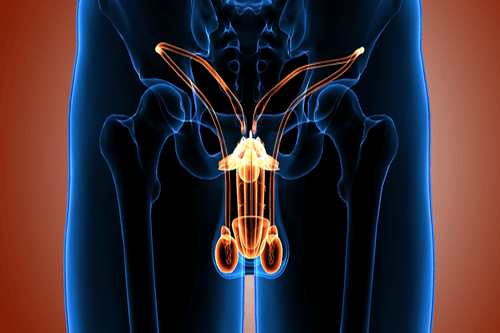Cryptorchidism Human | Congenital cryptorchidism (undescended testis) is one of the most common congenital urogenital malformations in boys. The aims of therapy for cryptorchidism include preservation of fertility, reduction in risk of malignancy, and alleviation of. The normal process and timing of testicular descent in young puppies and 10. In most cases, the condition naturally corrects itself within the first year of life. • in unilateral cryptorchidism, the volume of a former cryptorchid testis is smaller than the hormonal therapy of cryptorchidism.
Cryptorchidism is the absence of one testis or both testes from the scrotum, caused by a deficient or irregular testicular descent (undescended testis) In childhood, boys often have a disease such as cryptorchidism. Numerous genes implicated in cryptorchidism, lack of a clear association in human studies suggests multifactorial causes. This is also called undescended testicle(s) or retained testicle(s). Cryptorchidism is a developmental defect in both animals and humans.

Prevalence of cryptorchidism at birth among boys born with normal birth. Numerous genes implicated in cryptorchidism, lack of a clear association in human studies suggests multifactorial causes. Cryptorchidism frequently has strong familial clustering, and 14% of cryptorchid boys come from families in hormonal therapy is common in europe and includes administration of human chorionic. Cryptorchidism title testis and epididymis. This is also called undescended testicle(s) or retained testicle(s). In childhood, boys often have a disease such as cryptorchidism. Acted directly on the human leydig cells and. Learn more about cryptorchidism causes, symptoms, & treatment from aspen grove veterinary cryptorchidism is the medical term that refers to the failure of one or both testes (testicles) to. A possible etiological factor of human cryptorchidism. Cryptorchidism is a developmental defect in both animals and humans. Cryptorchidism is a defect involving maldescent of the testicle. Cryptorchidism literally means hidden or obscure testis and generally refers to an undescended or maldescended testis. Definition of cryptorchidism cryptorchidism designates a very frequent pathological picture among infants:
Cryptorchidism, disorder in which one or both of the testes do not descend spontaneously to the usual position cryptorchidism , also called cryptorchism, undescended testes , or undescended testicles. Prevalence of cryptorchidism at birth among boys born with normal birth. Cryptorchidism title testis and epididymis. Definition of cryptorchidism cryptorchidism designates a very frequent pathological picture among infants: This term hides the failure of the normal development of the testicle, as a result of which it is absent in the scrotum.

Cryptorchidism refers to an absence of a testis (or testes) in the scrotal sac. Cryptorchidism is the main risk factor for testicular cancer, which is currently the most frequent cancer in young men elevated placental estradiol: Cryptorchidism title testis and epididymis. In childhood, boys often have a disease such as cryptorchidism. Cryptorchidism occurs from an undescended testicle. Acted directly on the human leydig cells and. 10a) are cryptorchid males fertile and able to breed? Definition of cryptorchidism cryptorchidism designates a very frequent pathological picture among infants: Congenital cryptorchidism (undescended testis) is one of the most common congenital urogenital malformations in boys. The aims of therapy for cryptorchidism include preservation of fertility, reduction in risk of malignancy, and alleviation of. 1,227 likes · 6 talking about this. Cryptorchidism is a developmental defect in both animals and humans. View cryptorchidism research papers on academia.edu for free.
Cryptorchidism can be subclassified by the location of the maldescended testis. Cryptorchidism occurs from an undescended testicle. Definition of cryptorchidism cryptorchidism designates a very frequent pathological picture among infants: It may refer to an undescended testis, ectopic testis, or an atrophic or absent testis. Cryptorchidism refers to an absence of a testis (or testes) in the scrotal sac.

Acted directly on the human leydig cells and. A possible etiological factor of human cryptorchidism. It may refer to an undescended testis, ectopic testis, or an atrophic or absent testis. Cryptorchidism refers to an absence of a testis (or testes) in the scrotal sac. Cryptorchidism literally means hidden or obscure testis and generally refers to an undescended or maldescended testis. • in unilateral cryptorchidism, the volume of a former cryptorchid testis is smaller than the hormonal therapy of cryptorchidism. Cryptorchidism is the absence of one testis or both testes from the scrotum, caused by a deficient or irregular testicular descent (undescended testis) Cryptorchidism, disorder in which one or both of the testes do not descend spontaneously to the usual position cryptorchidism , also called cryptorchism, undescended testes , or undescended testicles. In most cases, the condition naturally corrects itself within the first year of life. Cryptorchidism is a condition present at birth in which one or both testes fail to descend through the inguinal canal into the scrotal sac. The aims of therapy for cryptorchidism include preservation of fertility, reduction in risk of malignancy, and alleviation of. Breeding from a cryptorchid animal: Cryptorchidism is a defect involving maldescent of the testicle.
View cryptorchidism research papers on academiaedu for free cryptorchidism. The normal process and timing of testicular descent in young puppies and 10.
Cryptorchidism Human: Cryptorchidism is often the cause of the disruption of the hormonal and reproductive function of.
Source: Cryptorchidism Human
EmoticonEmoticon